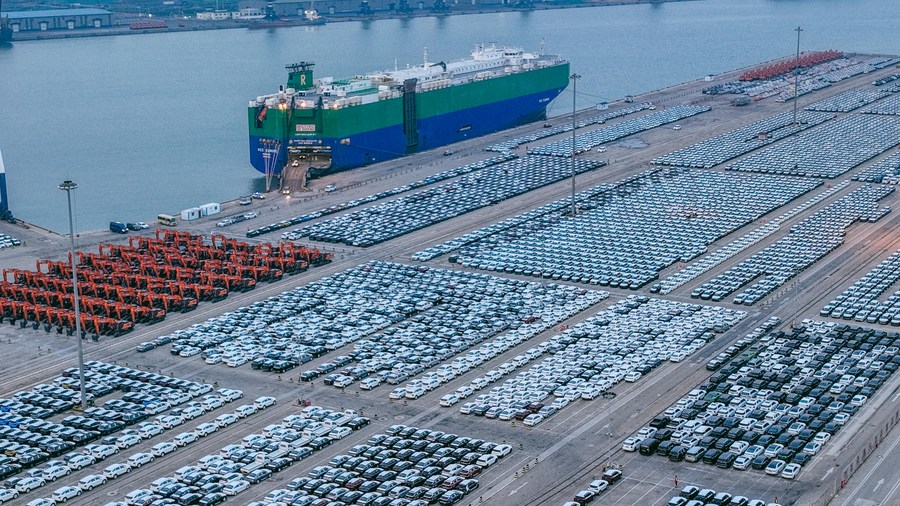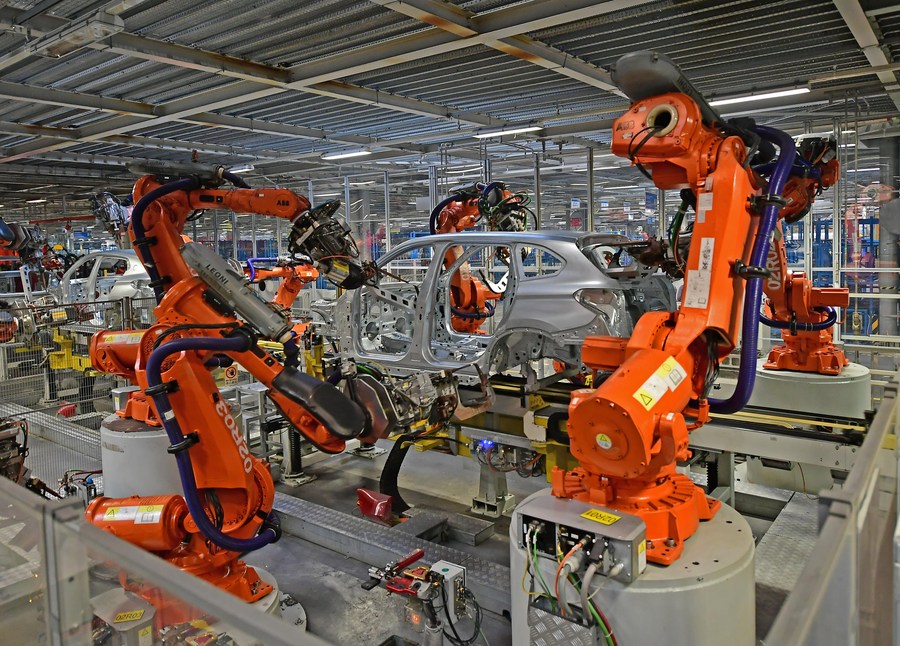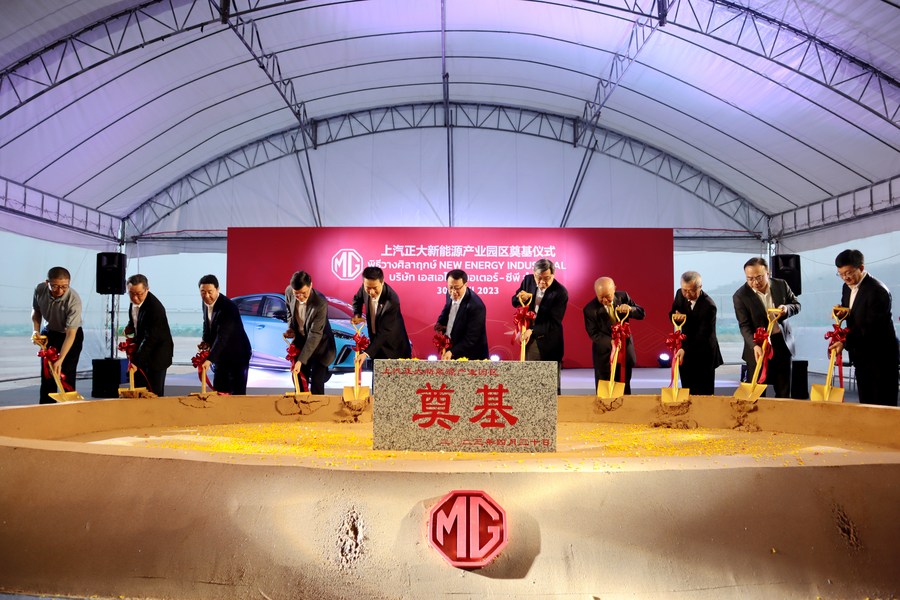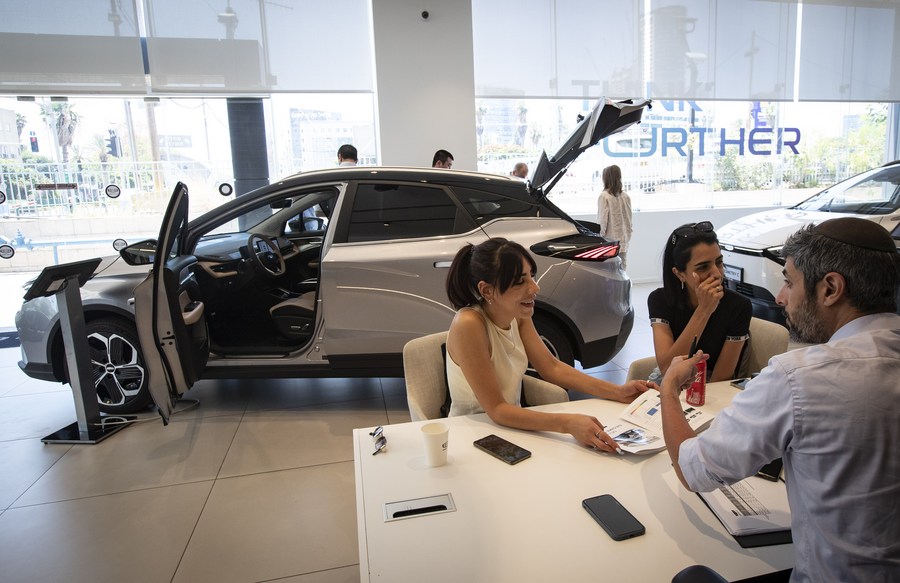China on track to become world's leading automobile exporter
* From January to May, China shipped 1.93 million vehicles overseas, up 80 percent year on year.
* Chinese auto manufacturers exported 457,000 units of NEVs from January to May this year, an increase of 1.6 times over the same period last year.
* If this trend continues, it is very likely that China will surpass Japan to become the world's largest auto exporter in 2023.
SHENYANG/SHANGHAI, June 29 (Xinhua) -- At the vehicle export terminal of Dalian Port, located in northeast China, brand-new cars were carefully loaded onto large cargo ships, ready to be shipped to Central Asia.
Since the beginning of this year, the port has been in busy operation, providing logistics services for car exporters such as BMW Brilliance Automotive Ltd. (BBA), Volvo and FAW. According to Dalian Port, it shipped 36,750 vehicles from January to May, an increase of 116.15 percent from last year's same period.
In Shanghai, the country's largest port city for automobile exports, vehicle exports are also picking up speed. According to Shanghai Customs, in the first five months of 2023, Shanghai's exports of electric passenger vehicles grew 152.9 percent year on year.
Nationwide, China's vehicle exports soared to around 1.07 million units in the first quarter of 2023, data from the General Administration of Customs (GAC) showed, indicating that China has become the world's largest auto exporter in the period, outpacing Japan.

This aerial photo taken on Jan. 18, 2023 shows vehicles waiting for shipment at Yantai Port in Yantai, east China's Shandong Province. (Xinhua/Zhu Zheng)
From January to May, China shipped 1.93 million vehicles overseas, up 80 percent year on year, according to GAC.
The China Passenger Car Association (CPCA) earlier forecast that China's vehicle exports will reach approximately 4 million units this year. "If this trend continues, it is very likely that China will surpass Japan to become the world's largest auto exporter in 2023," said Cui Dongshu, secretary general of the CPCA.
SUPPORTIVE MEASURES
At the Tiexi factory of BBA in the northeastern Chinese city of Shenyang, semi-trailers loaded with new cars can be seen rumbling out of the factory.

Mechanical arms conduct welding work in a workshop of the Tiexi Plant of BMW Brilliance Automotive Ltd. (BBA) in Shenyang, northeast China's Liaoning Province, Feb. 16, 2022. (Xinhua/Yang Qing)
"This batch of nearly 500 vehicles, all new energy vehicles (NEVs), enjoys a quick customs declaration procedure thanks to local preferential policies," said Chen Su, an employee of the foreign trade department of BBA, BMW's joint venture in China.
Various customized car-shipping routes for ro-ro ships have also been launched to spur exports.
Chinese auto giant SAIC Motor kicked off its maiden voyage in March with a new self-operated sea route connecting China's Ningde City with Mexico. Anji Phoenix, a ro-ro ship of SAIC with the largest capacity, set sail from Ningde Port, carrying the first batch of 1,000 MG models, to the port of Lazaro Cardenas in Mexico.
The launch of this new cargo shipping route is an active move by SAIC Motor to expand its overseas business. Thanks to the new route, the carmaker is able to transport vehicles, which roll off the production line of its Ningde base, directly to Mexico, said Wang Zemin, general manager of SAIC Anji Logistics Co., Ltd.
In 2022, SAIC's overseas market sales reached 1.017 million units. This is the first time that the annual overseas sales of a Chinese carmaker have crossed the 1-million mark. From January to May this year, SAIC sold 438,000 vehicles in overseas markets, up 47.7 percent year on year, continuing its strong upward momentum.
In addition to domestic auto manufacturers, an increasing number of foreign carmakers have established their presence in China. Their presence is instrumental in promoting the high-quality development of China's automotive sector and fostering a strong surge in auto exports.
Earlier this year, a batch of made-in-China Tesla electric vehicles was shipped from the Nangang wharf of the Shanghai Free Trade Zone to Thailand for the first time. According to Tesla China, its Shanghai Gigafactory delivered 710,000 vehicles in 2022, of which about 38 percent were exported overseas.
MULTIPLE MARKETS
NEVs are a highlight of China's vehicle exports. According to data from the China Association of Automobile Manufacturers, Chinese auto manufacturers exported 457,000 units of NEVs from January to May this year, an increase of 1.6 times over the same period last year.
Since 2020, China's electric car manufacturers have begun to enter the overseas mainstream automobile markets and become more competitive relying on their original technologies and targeted market strategies.
Targeting young consumers in Thailand, SAIC's NEV MG model is designed with an intelligent network interaction system that can understand Thai.
Thai consumers can directly interact with the "i-Smart" intelligent network system on MG cars in Thai language, which makes MG cars especially popular among young consumers, said Supakij Visedpaitoon, public relations manager of MG Sales (Thailand) Co., Ltd.

Participants attend the groundbreaking ceremony of a new energy industrial park of SAIC Motor-CP, a joint venture between SAIC Motor Corp and Charoen Pokphand Group, in Chon Buri, Thailand, April 30, 2023. (Xinhua/Wang Teng)
In 2021, Europe replaced Asia as the biggest buyer of Chinese NEVs. SAIC has designed the NEV model MG MULAN to seize the European market.
"MG MULAN fully takes into account the preferences of European consumers from the design," said Andreas Kostelecky, managing director of MG Motor Austria. "European consumers like China's new technologies very much, and this car will become our best seller."
MG MULAN has so far hit nearly 30 European markets and will be available in more than 80 countries this year. Its sales volume in March broke the record of a single Chinese NEV model selling more than 10,000 units monthly in overseas markets.
In May, MG brands continued to perform excellently in Europe, with monthly sales reaching 21,000 units, up 170 percent year on year, ranking among the top in terms of NEVs sales in major European markets.
In Israel, China's electric carmaker BYD became the top-selling electric car brand from January to May, selling 8,497 electric cars. Geely Auto Group, another Chinese automaker, which sold 4,091 compact crossover Geometry C cars in the period, ranked second among all electric car brands.

Customers negotiate to purchase Geely's electric vehicle model Geometry C in Tel Aviv, Israel, June 21, 2023. (Xinhua/Chen Junqing)
"China is far ahead of Europe and the United States in key core technologies such as pure electric vehicle platforms, fuel cell vehicles, power batteries, and third-generation semiconductors," said Ronen Yablon, general manager of Geely Israel. "In the future, Chinese auto brands will play a more important role on the global automotive stage and lead the development."
- Ethiopia's Chinese-built industrial park generates 28 mln USD in exports in 9 months
- Shanghai pier sees record vehicle exports in 2023
- Indonesia seeks to raise export value to China in 2024
- LensToLens | How a Chinese NEV contributes to greener mobility in Indonesia
- Interview: Full confidence in China's economy: legal representative of BMW (China) Insurance Brokers

